PoilâneThe Secrets of the World-Famous Bread Bakery
To food lovers the world over, a trip to Paris is not complete without a visit to Poilâne. Ina Garten raves about the bread’s “extraordinary quality.” Martha Stewart says the P in Poilâne stands for “perfect.” For the first time, Poilâne provides detailed instructions so bakers can reproduce its unique “hug-sized” sourdough loaves at home, as well as the bakery’s other much-loved breads and pastries. It tells the story of how Apollonia Poilâne, the third-generation baker and owner, took over the global business at age eighteen and steered it into the future as a Harvard University freshman after her parents were killed in a helicopter crash.
Beyond bread, Apollonia includes recipes for pastries such as the bakery’s exquisite but unfussy tarts and butter cookies. In recipes that use bread as an ingredient, she shows how to make the most from a loaf, from crust to crumb. In still other dishes, she explores the world of grains: rice, corn, barley, oats, and millet. From sunup to sundown, Poilâne traces the hours in a baker’s day, blending narrative, recipes, and Apollonia’s philosophy of bread.
APOLLONIA POILANE, the 35-year-old CEO of Poilâne, began life cradled in a crib made from a bread basket. She has expanded the business internationally, and Poilâne now ships to more than 5,000 loaves to forty countries. Poilâne has six bakehouses in Paris, London, and Antwerp.
Apollonia Poilâne

BAF: I appreciate you taking the time to talk with us, or talk with me. I guess, maybe I should start off by asking what inspired you to write this book?
Apollonia Poilâne: So the book started with me having a whole summer in Brittany, and the Brittany part is important. But I was in Brittany with a loaf of bread, and after a solid 12 days, I realized I was eating through my last slice of the bread, and my thoughts were my bread, even though it’s 13 days old, is still pretty fresh. And the fact that both, I was amazed by something that’s been my daily bread for over, at that point, 10 years, made me realize that I’m very thankful, and admirative, of the bread tradition that my grandfather initiated, and that my father developed. So what prompted me to do, and to write this book, was to say, I want people to know, the taste, the flavor, and why I love my family’s business. And why bread should be celebrated, and cared about. And talk about the specifics of our bread tradition.
BAF: Well, the reason I ask is because your story is certainly well known, and I was just curious, and it seems like a very, extremely personal book to write, because it’s about your family, it’s about your passion, history of course, and the future. And it struck me as, people write a lot of personal books, but this one seemed extra personal. And I was just curious, after all this time, why this is the first book that anybody in the family had written?
Apollonia Poilâne: Yeah. So it’s actually our first book in English, but we’ve published several times,. So my father, when he passed away, was working on a book project that I pursued with two collaborators, who were his friends, and we worked on the book, and they … we added my voice into the book so that I could give it a more contemporary tone and be true to the fact that he hadn’t finished the book project.
BAF: Passing of the torch?
Apollonia Poilâne: Exactly.
BAF: In literary form.
Apollonia Poilâne: Absolutely. And so we did that, that was in 2005. And the book has been, we still sell it in the store, which is remarkable. And over the years, I was like, I’ve been wanting to work on a book in English, and I just never found the format. The experience I just described was the kickoff of this book project. However, I’ve written in the interim a bunch of other books on using bread as an ingredient, an anthology of words on breads. And so all of those things have kept me busy, basically. Beyond my day job as a baker and CEO of Poilâne.
BAF: So what was your goal when you sat down to begin this project, what was your goal?
Apollonia Poilâne: My goal was to convey the singularity, the uniqueness of Poilâne bakery, of what is the ambience when you come in at 6 AM, and you start your day as an apprentice. What is the rhythm, what’s going on, when your client comes around 8, 8:30 AM, and there’s no one in the store seemingly, because we’re all crowded up in the back room, sharing breakfast together. And it’s all of those things that I was trying to convey. Of course, the broader narrative is three generations of bakers, of love and passion for cereals, fermentation, cereal grain fermentation, and then giving recipes, because it’s something that’s practical to sort of get your hands dirty and get into the nits and grits of it. But also I think it was important to show people what to do with a piece of bread once you’ve baked a hell of a lot of sourdough loaves.
That is definitely timely, because, I mean, I see so many people out there that are cooking, baking breads, and thinking like, what to do with leftover sourdough?
BAF: Well, that’s what I found interesting, and I’m sure growing up you were probably tripping over loaves all the time, and so there was a need to use it in different ways, I’d imagine.
Apollonia Poilâne: No, absolutely.
BAF: When you were writing this book, was there any danger of, in some ways, for lack of a better word, regurgitating history? How did you avoid rehashing a story that is so well known?
Apollonia Poilâne: So it’s a very good point. So the book I did in 2005 was in some ways a rehashing of a story that had already been told. So this project, because it stems from this particular place that I was sharing with you, and because I was looking at telling sort of the story of what happened, the rhythm of the bakery, and my story, which yes, I’ve been interviewed, but I’ve never written the way that I experienced taking over the family’s business, and so I think that made it, the approach in and of itself was something that helped me avoid that. And then the reality is that, as you said, how do you make sure that you don’t just paraphrase what’s already been said, and so that was easy because every time I was working on, this book project and outline that really helped me, that I detailed enough to help me avoid that pitfall.
BAF: Well, let me ask you, what was the writing process like for you?
Apollonia Poilâne: For me? Well, so I worked with a collaborator, so I wrote the narrative, and then Joanna would read me over, and tell me when it made absolutely no sense. Which was amazing, because you know, when you’re passionate about your subject matter, there’s just a point where you’re just like, you just don’t have the space to just check in. And make sure that this is not just internal lingo. So the process was, I mean, well, this is not my first book, so although it was my first in English, I think, because I went to college in the US, it was actually much more fun to write.
BAF: You grew up bilingual didn’t you?
Apollonia Poilâne: Yes.
BAF: Which is always nice.
Apollonia Poilâne: Yes. I would it was only in college I really learned how to write, and so it was easier, even though that didn’t make it better writing, so the process was more about putting it in tense, and writing what was the feeling, and what was the facts, and then working from there, and adding, as much as I could, a little bit of poetry to my words and experiences.
BAF: I was curious, we’re living in a strange time right now, the one thing that seems to be happening is everybody’s baking.
Apollonia Poilâne: Yeah.
BAF: I was wondering if you had any thoughts on that.
Apollonia Poilâne: I have many thoughts on that, but the first feeling is that I think it’s amazing. It’s amazing that in times of crisis, people revert to these basics, bread, using your hands, appreciating foods. And I think the why is somewhere in that realm, and it’s fantastic, because it shows just how out of touch people are with all of these things in the world of yesterday. And my hope is that people will gain an appreciation of the craft, and the time, and effort, and know how it takes to bake bread. And at Poilâne, we train for our bakers for nine months, and that process is a process whereby we try and give all of the clues and all of the methods for our bakers to then work through a lifetime of know hows and experiences that can really help them be bakers that can adjust to their environment, on a given day.
BAF: It only takes nine months? I’m surprised, I thought it would be more, although I guess-
Apollonia Poilâne: For the nuts and bolts, but then, honestly…
BAF: A lifetime.
Apollonia Poilâne: Years, to master the know how,
BAF: Well, I guess, touching on that is what would you say the future is of artisanal baking? Is there room for that, these days, of mass production?
Apollonia Poilâne: I think there is. And I really see parallels between the world of craft chocolates in the US and baking, and I think that there is … know, even in France, but more so in the US, industrial bread since World War II has had it’s hey day, and it will still have it’s unique shapes and forms because people think that you can make cheap bread. But then there’s also people who realize that well, artisanal breads, quality ingredients make the world of difference. And it’s not all that hard to look out for them. And if you’re in the middle of nowhere, then books like mine provide basis to work from, and with.
BAF: I really thought it was an interesting take that you weren’t just throwing out bread recipes. Obviously the recipes there, but the fact that you did include the ideas of ‘okay, now, what next? What else can you do?’ So the people aren’t wasting things, they’re finding new uses for what they thought was a fairly one or two trick pony, so to speak.
Apollonia Poilâne: Yeah. And I think, so there is two drivers in the recipes I include in the book. One is the recipe so that people can get their hands into the experience of bread baking, like we do it at Poilâne, using our five senses. And then there’s two types of recipes, whether sweet or savory, I try and tell people once you have your life of bread, your cookie, your cake, these are things you can do with it so you don’t waste a piece. And this simply stems from a wealth of historical recipes, but also my desire not to waste the work that’s been accomplished. But the other thing is, some of my clients like super fresh bread, and some of my clients like bread only when it’s sort of stale. Or you know, it’s kind of like the difference between some people who like bread that, or one of my little treats when they’re very pale or others when they’re very dark. I like them when they’re very dark, because the sugars have caramelized, has more flavor.
But each to their own, and the point that I’m getting to is that from day one when it’s super fresh, to day x when it’s super stale, there’s different ways of enjoying the breads. And one of my ambitions was that people who are super fan of only super fresh bread, they can come into the store and buy a slice every day, but they can also keep the bread a few days and have other recipes to enjoy the bread with, and not feel like they’re just reusing stale bread.
BAF: Well, certainly I think if you’re doing it by hand, I think there’s more of an appreciation, as opposed to an anonymous person just stacking up the grocery store.
Apollonia Poilâne: Yeah.
BAF: I imagine you travel around a lot, and as a student of bread, for lack of a better expression. Do you still get surprised by new techniques, or new products, or uses?
Apollonia Poilâne:I do. You know, I was just thinking there is, one of the things I have in mind is I visited, traveled to Myanmar several years ago, and there was a gentleman that is the son of a diplomat, and as a result, he was able to both travel of Myanmar and also champion local ingredients, and making these incredible products. And he has this passion for cheese, but he loves bread. And he has, you know, he’s adapted his techniques to the fact that it’s a really warm and humid environment, to make these beautiful baguettes. And it was just really impressive. Or how some Japanese bakers, I went for the first time to Japan in 2008, and I was amazed at how they were reviving old French baking techniques, which we probably deemed at the time completely old school. But they brought a modernity to it that just refreshed it, and now we’re just, been in the past, say three, five years, seeing those products back on the shelves in France, where they were just like really old school style products.
I’m constantly amazed at people’s creativity, and how they adapt to their environment.
BAF: You have your bakery downstairs, and are you still able to go in full force these days?
Apollonia Poilâne: We have smaller hours, and we have, yeah, it’s just we’ve enforced all of the standard practices for social distancing, so on and so forth, and all the clients that were restaurants that we used to previously, of course we’re not serving them right now, so yeah, so we’re adapting and working our best so that our community is fed.
BAF: So finally what’s next for you?
Apollonia Poilâne: What’s next for me? Hmm. Well, just because of these funny times, there’s a lot of thinking of how do I change my consumer’s experience, and how do I make sure that my … I think we try and operate at, of course, the highest standards of hygiene and I think that, I’m working on making sure that people, my customers coming into the store, realize that. And upping whatever I can when it makes sense. One of the projects that’s in the books is we’re working on our Poilâne in training, and it’s our school of baking, so to speak. It’s a project that, well, it’s pushed back a little bit with COVID, so it will happen in due time.
Crédit photo : Philippe Vaurès Santamaria.
© Booksaboutfood.com 2020 | All Rights Reserved.
Epicurious‘ “New Fall 2019 Cookbooks We Can’t Wait to Cook From”
Food & Wine 18 Essential New Cookbooks for Fall
Amazon’s pick for Biggest Cookbooks of Fall
Chowhound‘s Best New Cookbooks and Best New Baking Cookbooks for Fall 2019


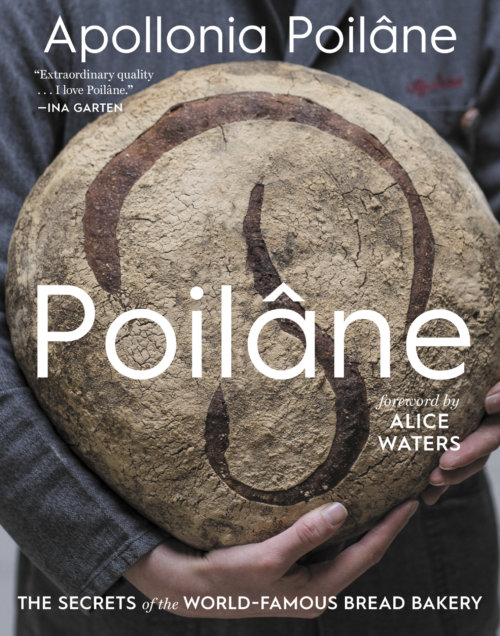


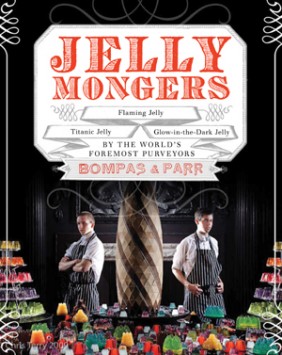
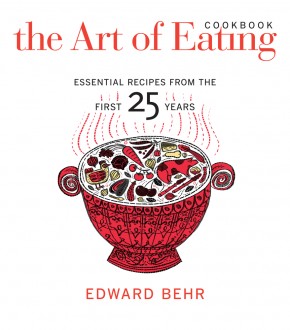
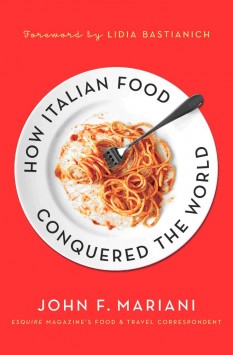
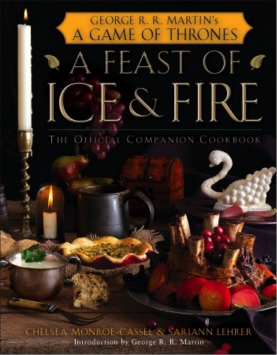
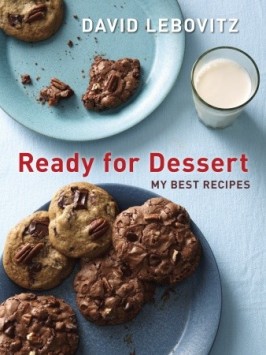
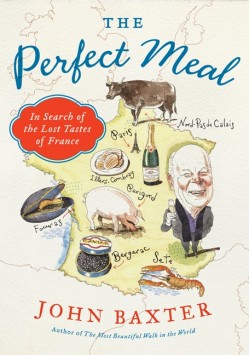
Leave a Reply